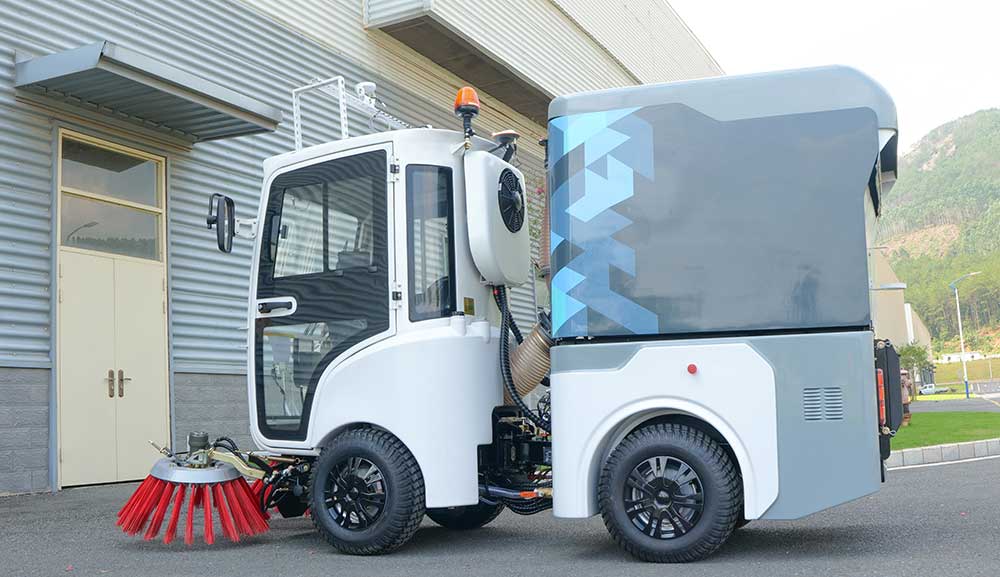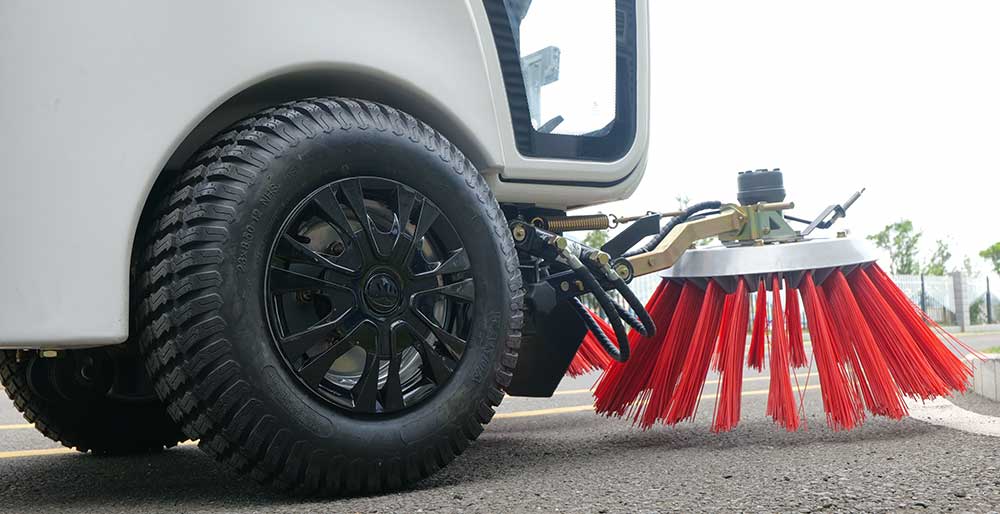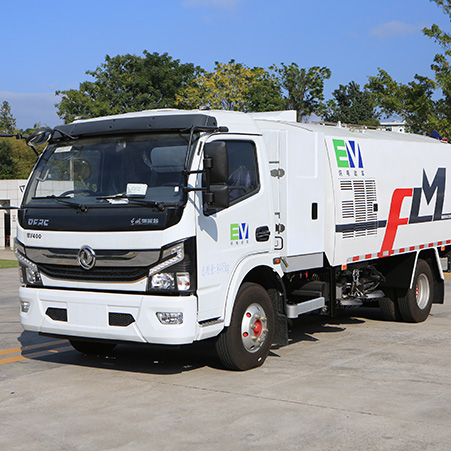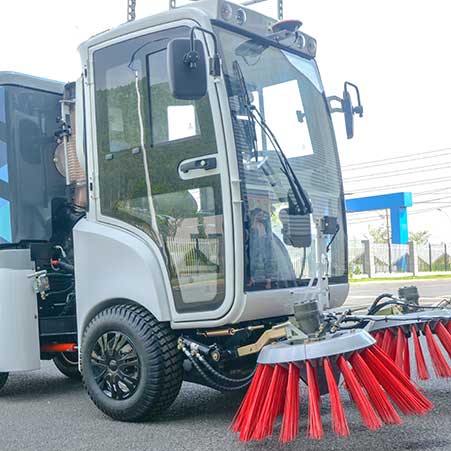From bustling city centers to quiet suburban neighborhoods, clean streets contribute to a healthier and more pleasant living experience. At the heart of this effort are road sweeper trucks, which tirelessly sweep away debris, dust, and litter from our roads, sidewalks, and public spaces.
In recent years, there has been a growing interest in electric road sweeper trucks as a sustainable and efficient solution for maintaining clean streets. These futuristic vehicles promise to revolutionize street cleaning by combining advanced technology with environmental consciousness. In this article, we delve into the world of electric road sweeper trucks, exploring their benefits, challenges, and potential impact on our cities.

What Are Electric Road Sweeper Trucks?
Electric road sweeper trucks are specialized vehicles designed to remove dirt, leaves, trash, and other debris from streets and public areas. Unlike traditional diesel-powered sweepers, electric models rely on battery-driven motors, making them more eco-friendly and cost-effective. Let’s take a closer look at why these electric sweepers are gaining traction.
Technological Advancements
The transition to electric road sweeper trucks is driven by significant technological advancements. Modern electric sweepers feature powerful electric motors that provide efficient and reliable performance. Key components include high-capacity lithium-ion batteries, advanced brush systems, and regenerative braking technology. These batteries are designed for longevity and quick charging, ensuring minimal downtime. Some models are even equipped with smart technology, allowing for real-time monitoring and optimization of cleaning routes. Innovations in energy-efficient designs and materials also contribute to the overall efficiency and effectiveness of these machines.
Environmental and Economic Benefits
- Reduced Emissions: By eliminating diesel engines, electric sweepers produce zero tailpipe emissions, significantly reducing air pollution and greenhouse gas emissions.
- Lower Noise Pollution: Electric motors are much quieter than diesel engines, leading to less noise pollution, which is particularly beneficial in residential areas and during nighttime operations.
- Cost Savings: While the initial investment in electric sweepers may be higher, they offer long-term cost savings through reduced fuel and maintenance expenses. Electric motors have fewer moving parts, resulting in lower maintenance requirements and longer lifespans.
- Energy Efficiency: Electric sweepers utilize energy more efficiently than their diesel counterparts, contributing to overall energy conservation.
How Electric Road Sweeper Trucks Work

Electric road sweeper trucks operate using a combination of electric motors and battery systems. Here’s a step-by-step overview of how they work:
- Power Source: The vehicle is powered by high-capacity lithium-ion batteries that supply energy to the electric motors.
- Driving and Sweeping: The electric motor drives the vehicle while separate motors power the sweeping mechanisms, including rotating brushes and suction systems.
- Regenerative Braking: When the vehicle slows down or stops, regenerative braking technology converts kinetic energy into electrical energy, recharging the batteries and improving overall efficiency.
- Waste Collection: Debris is swept into a collection hopper, which can be easily emptied at designated waste disposal sites.
Benefits of Electric Road Sweeper Trucks
Beyond environmental and economic advantages, electric sweepers provide improved operator comfort, reduced maintenance requirements, and the potential for autonomous operation thanks to their sophisticated electronic control systems.
- Eco-Friendly: Zero emissions and reduced noise pollution contribute to a healthier urban environment.
- Operational Efficiency: Advanced technology ensures effective cleaning and optimized routes, reducing operational time and costs.
- Cost-Effective: Lower fuel and maintenance costs result in significant long-term savings.
- Regulatory Compliance: Electric sweepers help cities comply with environmental regulations and meet sustainability goals.
- Public Health: Cleaner streets reduce the spread of pollutants and allergens, improving overall public health.
Electric road sweeper trucks represent a promising future for street cleaning. As technology continues to evolve, we can expect even more efficient, eco-friendly solutions. By embracing electric sweepers, cities can create cleaner, quieter, and more sustainable urban environments.
FAQs
How do electric road sweeper trucks differ from traditional diesel-powered sweepers?
Unlike diesel sweepers, electric sweepers are powered by rechargeable batteries and produce zero emissions, making them environmentally friendly and quieter.
What challenges do electric road sweeper trucks face?
Key challenges include higher initial costs, limited battery life and range, infrastructure requirements, and performance in harsh weather conditions.
How are cities supporting the adoption of electric road sweeper trucks?
Cities are investing in charging infrastructure, offering incentives and subsidies, and conducting pilot programs to integrate electric sweepers into their fleets.
How long does the battery last during a cleaning cycle?
Battery life varies, but advancements in battery technology are extending operational hours.
Can electric sweepers handle heavy debris?
Yes, robust vacuum systems allow them to handle various types of debris effectively.






